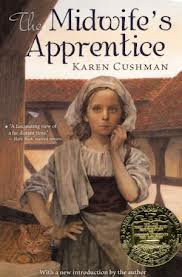In the last few weeks, due to much time on an airplane and even more time not feeling well (I always seem to get sick after flying), I read three novels. All three have spent time on the NEW YORK TIMES bestseller list, although not the same amount of time and not in the same year. All three center on a young woman in a problematic relationship.
THE NEWLYWOODS chronicles the Internet courtship, marriage, and emigration to America of Amina, an educated but poor Bangladesh woman who wants a better life. She doesn't love George, her new American husband, but she likes him well enough, and she needs him to bring her parents out of danger in her native country. Amina's relationships--with George, with the old love she left behind, with her parents and extended family, with her new American relatives, and with the United States itself--grow increasingly complex as the novel progresses. Her choices grow harder. Whether or not you agree with Amina's final decision, she is believable, interesting, and very human.

A little more formulaic but still very good is Philippa Gregory's historical novel, THE VIRGIN'S LOVER. Amy Dudley is the young wife of Robert Dudley, Earl of Leicester, who has the good fortune to be having a love affair with the young Queen Elizabeth I. Not such good fortune for Amy. History has offered several opinions on how Amy Dudley ended up dead at the bottom of a staircase four centuries ago, but Philippa Gregory offers a fresh, absorbing take on this, along with her usual vivid picture of Tudor England. Amy Dudley here is not as complex or solid as Amina Stillman, but the novel is still very good

The third book I read was E. L. James's FIFTY SHADES OF GREY, about Anastasia Steele and everybody-already-knows-what. The less said about this novel, the better -- except for one question. Why is the book about a believable young woman struggling with genuine, and genuinely complex, moral and family issues the least commercially successful of the three; the second-best book much more successful; and the trashy one dominating everything from bookstores to social commentary? What does that say about us, the book-buying public?










































